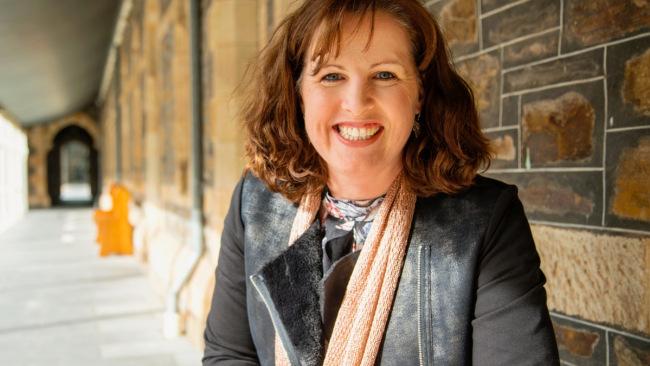My journey with MS: Deb's Journey with MS
DEB was 31 when she began to notice numbness in her arm. She shrugged it off, attributing the sensation to a pinched nerve.

DEB was 31 when she began to notice numbness in her arm. She shrugged it off, attributing the sensation to a pinched nerve.
As a new mother, with a two-year-old son and three-year-old daughter, a big part of her day was spent pushing a pram, so she saw nothing unusual in the fact her body was feeling the strain. What worried her was that the numbness wasn’t going away. Her fears grew when she started experiencing blurred vision, and at that point Deb bit the bullet and went to the doctor hoping to find out what was going on. Her GP referred to a neurologist, and it was the specialist who dropped the bombshell on Deb: a diagnosis of relapsing remitting multiple sclerosis.
Multiple sclerosis is a condition of the central nervous system which interferes with nerve impulses and can cause a wide range of symptoms, including problems with motor control, fatigue, memory loss and cognitive difficulty and other neurological symptoms. Relapsing remitting MS (RRMS) is the most common type of MS, and is characterised by partial or full recovery after attacks, or relapses.
At the moment of her diagnosis, Deb didn’t know the details of her condition – all she had was a huge number of questions, and seemingly nowhere to find the answers. She also had a great deal of fear: for Deb and her family it was terrifying to see the range of symptoms affecting the young mum. Besides the numbness that had first raised the alarm, she was suffering from fatigue, tightness in the chest, and a loss of balance – sometimes even an inability to walk. A frightening future seemed to be ahead.
Help was at hand, though: Deb’s neurologist connected her with the MS Society, through which she was put in touch with an MS nurse. At a time when her life was in turmoil, questions and fears of the unknown flooding her mind, Deb found strength in her MS nurse as she sought to make sense of her diagnosis and work through the issues she was facing.
It was her MS nurse who organised a physiotherapist and occupational therapist for Deb, to help her maintain the ability to live her life as much as possible as she had previously. Beyond that practical assistance, though, the really invaluable part of what her MS nurse offered was the presence of someone to talk to, to ask questions of: the moral and emotional support was just as crucial as the practical help. It was reassuring for Deb to have someone from The MS Society come and talk to her and her family and explain everything they needed to know about MS, its effects and what it would mean for them going forward.
To deal with the life-changing impact of an MS diagnosis requires a strong support network. The MS Society helped form a major part of that network for Deb, particularly immediately after the diagnosis, when her need for support was at its greatest. As she puts it, “to know you’re not alone, to know there’s someone you can talk to who actually understands what you’re going through – that was just invaluable.”
The MS Society provides this kind of support to thousands of Australians like Deb who are living with MS. The MS Game Changer Lottery is a initiative of the MS Society allowing everyone to contribute to the work the Society does. Half of the proceeds from sales of MS Game Changer Lottery tickets go to providing essential services and support to people with MS, while the other half will help fund research into the cause of and cure for MS.
After her initial diagnosis, Deb enjoyed an eight-year remission period free from any attacks, during which she returned to work and founded a business with her husband. Two years ago she was forced to stop work when she suffered a relapse – hand tremors, diminished motor and cognitive skills and memory loss had made working too difficult. This is one of the hardest things about living with MS: its unpredictability, where symptom-free periods are followed by debilitating relapses. It’s tough to know what might be around the corner.
Deb has by no means given up after the return of her symptoms. “Despite what MS throws at me I really want to keep going and the great support I have around me helps keep me positive.” The services provided by the MS Society form a big part of that support, and by the same token, it’s the support of ordinary Australians that allows the MS Society to provide those services. Deb is just one of many people with MS whose lives have been improved by the MS Society, with many more to come.
Originally published as My journey with MS: Deb's Journey with MS


